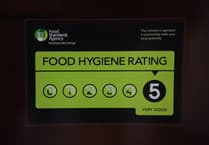Government-appointed commissioners to Woking Borough Council have published their second report on Woking, a follow on from their August 2023 report. It recognises that “the council remains in an extremely vulnerable position” and that the capacity of the commissioner team be increased to allow more time for the borough to find candidates to appoint a new chief executive.
Since the officers’ first report, when the deficit calculated was £1.2billion, further work has been undertaken which has confirmed that the deficit remains much the same plus an additional loss of circa £185million in 2024-25.
Inter alia the team has identified that money has been wrongly taken from the Housing Revenue Account to the extent that some of the council’s housing stock almost certainly no longer meets relevant standards; and the Sheerwater development has had to be significantly scaled back.
Furthermore, despite incomplete financial records (and/or data that’s proving difficult to access), it’s increasingly clear that there was regular overspend over the years by previous Conservative administrations on revenue items with borrowed money that has been wrongly accounted for since as sundry assets.
In addition there is further rolled-up interest on the outstanding loans, previously hidden since cash flow and treasury management protocols had not been adhered to. The evident lack of corporate governance, the granting of new loans, and/or the approval of asset acquisitions, be they elected councillors and/or council officers, has also contributed to the deficit.
The report confirms that “the finance function is still not fit for purpose and not equipped to deliver the volume and complexity of the work required…..” and that more work “is required to establish data on all title and tenancy deeds and agreements”.
Publicly available financial accounts are such an important part of transparency and accountability to residents and those who oversee what is going on in the council that it is therefore disappointing that the audit of the 2019-20 accounts is still not complete, while the 2020-21, 2021-22 and 2022-23 audited figures remain outstanding.
A balanced 2024-25 budget has to be set by March. The council does not have the financial means to meet all its commitments. The hovernment will have to put in place a restructuring plan to help Woking Borough Council get back on its feet over a period of time.
Nevertheless it won’t pick up Woking’s whole bill, and residents and local businesses will be required to contribute.
In the circumstances, residents of Woking and local businesses are keenly awaiting the Grant Thornton report that was commissioned at the time of the Section 114 notice in the summer to look into how it came to pass that a small council like Woking, with little more than £10million taxable income per annum, could borrow over a billion pounds and have no means of servicing its debts.
Was the Public Works Loans Board partly to blame for reckless lending, but if so what happened after the Treasury took over in 2020 and launched its own more forensic review of its loan book to local authorities?
Will Grant Thornton consider publishing all (or provide a summary of) the correspondence between the Treasury and/or the Levelling Up department; and Woking Borough Council and its senior elected councillors from early 2020 to the end of May 2022, and comment on what it tells them?
Will Grant Thornton say what was the lending policy of Woking Borough Council and will they comment on how many loans were subsequently reclassified as investments; were the loans to the VSWL [Victoria Square Woking Limited] company and the Greenfields preparatory school typical examples of lending processes that lacked rigour and proper financial analysis?
And what was the basis of asking the majority shareholder Moyallen, a Northern Irish developer business in the VSWL company, to put up only £15,600 cash, yet the council loaned this new entity on an increasingly unsecured basis initially £450million and another £300million in subsequent tranches, thereby increasing the amount loaned to £750million (and all of it at sub-market rates)?
And what will Grant Thornton conclude lay behind Woking Borough Council falling down so badly on its procurement procedures and its internal audit function?
Grant Thornton must realise that the residents of Woking and local businesses are looking to their report, that has taken so much longer than originally envisaged, to recommend that persons must be held accountable for the losses of Woking Borough Council.




